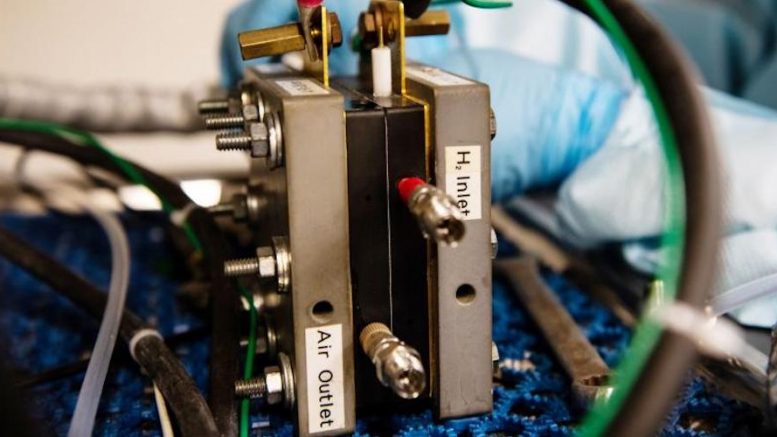A team led by researchers at the Pacific Northwest National Laboratory in the United States have designed a highly active catalyst that contains cobalt interspersed with nitrogen and carbon and therefore doesn’t rely on platinum to spur the necessary chemical reaction.
In a paper published in the journal Nature Catalysis, the scientists explain that their invention is four times more durable than similarly structured catalysts made from iron — another platinum substitute.
In their view, their findings show promise for fuel cells in transportation as proton exchange membrane fuel cells paired with hydrogen require very active catalysts for the chemical reaction —the oxygen reduction reaction that makes a fuel cell efficiently function— to take place.
The researchers started looking at cobalt because, even though PGM tends to be the most common catalyst material for PEM fuel cells, it is very expensive, while other options such as transition metals quickly degrade in the acidic proton exchange membrane fuel cell environment.
“We knew that the configuration of cobalt with nitrogen and carbon was key to how effectively the catalyst reacts and that the active site density was critically important for performance,” Yuyan Shao, lead author of the study, said in a media statement. “Our goal was to really improve the reaction activity of cobalt-based catalysts.”
Shao explained that he and his team immobilized cobalt-based molecules in the micropores of zeolitic imidazolate frameworks, which served as protective fences to decrease the cobalt atoms’ mobility and prevent them from clustering together. They then used high-temperature pyrolysis to convert the atoms to catalytically active sites within the framework.
Within this structure, they discovered that the density of the active sites significantly increased, in turn raising the reaction activity. This achieved the highest activity in fuel cells reported for non-iron, platinum group metal-free catalysts to date.
The team also discovered, for the first time, significant differences in demetallation, where metal ions are leached out of the catalyst and that catalyst then loses activity. They also found that oxygen radicals from hydrogen peroxide, a byproduct of oxygen reduction in fuel cells, attack the catalysts and cause performance loss.
“In the end, we were able to not only improve the activity of the cobalt-based catalyst, but we significantly improved the durability,” Shao said. “Our further investigation led us to discover the mechanisms that typically degrade these types of catalysts.”
This article first appeared in MINING.com, part of Glacier Resource Innovation Group.






Be the first to comment on "Cobalt may substitute platinum in fuel cells"